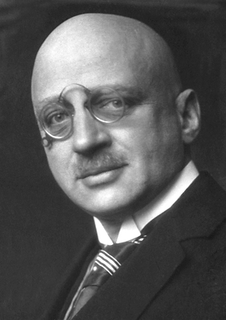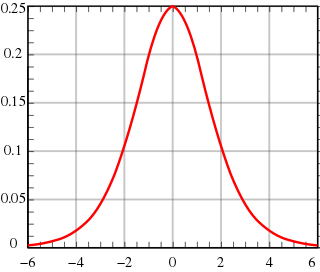 W
WPeak oil is the year when the maximum rate of extraction of petroleum is reached, after which it is expected to enter terminal decline. As of 2020, peak oil forecasts range from 2019 to the 2040s, depending on economics and how governments respond to global warming. It is often confused with oil depletion; however, whereas depletion refers to a period of falling reserves and supply, peak oil refers to the point of maximum production. The concept of peak oil is often credited to geologist M. King Hubbert whose 1956 paper first presented a formal theory. Peak coal was in 2013 and peak oil is forecast to occur before peak gas.
 W
WFrom the mid-1980s to September 2003, the inflation-adjusted price of a barrel of crude oil on NYMEX was generally under US$25/barrel. During 2003, the price rose above $30, reached $60 by 11 August 2005, and peaked at $147.30 in July 2008. Commentators attributed these price increases to many factors, including Middle East tension, soaring demand from China, the falling value of the U.S. dollar, reports showing a decline in petroleum reserves, worries over peak oil, and financial speculation.
 W
WThe 2008 Bulgarian Energy Crisis was a crisis in Bulgaria. The crisis affected more than a million households, mainly in the capital Sofia but also in Burgas, Pleven, and Vratsa. As of late September 2008, the issue was not resolved.
 W
WChampion Oil Field also known as Champion Field is a complex oil and gas field, situated 40 kilometres north-northwest of Bandar Seri Begawan, in water depths of 10 to 45 metres. The shallow part of the field is covered by coral reefs.
 W
WDecline curve analysis is a means of predicting future oil well or gas well production based on past production history. Production decline curve analysis is a traditional means of identifying well production problems and predicting well performance and life based on measured oil well production. Before the availability of computers, decline curve analysis was performed by hand on semi-log plot paper. Currently, decline curve analysis software on PC computers is used to plot production decline curves for petroleum economics analysis.
 W
WA steady-state economy is an economy made up of a constant stock of physical wealth (capital) and a constant population size. In effect, such an economy does not grow in the course of time. The term usually refers to the national economy of a particular country, but it is also applicable to the economic system of a city, a region, or the entire world. Early in the history of economic thought, classical economist Adam Smith of the 18th century developed the concept of a stationary state of an economy: Smith believed that any national economy in the world would sooner or later settle in a final state of stationarity.
 W
WEnergy descent is a process whereby a society either voluntarily or involuntarily reduces its total energy consumption.
 W
WFood versus fuel is the dilemma regarding the risk of diverting farmland or crops for biofuels production to the detriment of the food supply. The biofuel and food price debate involves wide-ranging views, and is a long-standing, controversial one in the literature. There is disagreement about the significance of the issue, what is causing it, and what can or should be done to remedy the situation. This complexity and uncertainty is due to the large number of impacts and feedback loops that can positively or negatively affect the price system. Moreover, the relative strengths of these positive and negative impacts vary in the short and long terms, and involve delayed effects. The academic side of the debate is also blurred by the use of different economic models and competing forms of statistical analysis.
 W
WFrontlines: Fuel of War is a first-person shooter game for Microsoft Windows and Xbox 360. It was released February 25, 2008 in North America. It was produced by the now-defunct Kaos Studios. Frontlines: Fuel of War was also originally in development for the PlayStation 3, although THQ announced it had canceled work on this version on January 24, 2008, seemingly as a result of problems with developing for the PlayStation 3, issues that had been referenced in interviews prior to the PlayStation 3 version's cancellation.
 W
WThe Haber process, also called the Haber–Bosch process, is an artificial nitrogen fixation process and is the main industrial procedure for the production of ammonia today. It is named after its inventors, the German chemists Fritz Haber and Carl Bosch, who developed it in the first decade of the 20th century. The process converts atmospheric nitrogen (N2) to ammonia (NH3) by a reaction with hydrogen (H2) using a metal catalyst under high temperatures and pressures:
 W
WThe Hubbert linearization is a way to plot production data to estimate two important parameters of a Hubbert curve, the approximated production rate of a nonrenewable resource following a logistic distribution:the logistic growth rate and the quantity of the resource that will be ultimately recovered.
 W
WThe Hubbert peak theory says that for any given geographical area, from an individual oil-producing region to the planet as a whole, the rate of petroleum production tends to follow a bell-shaped curve. It is one of the primary theories on peak oil.
 W
WIn economics, the Jevons paradox occurs when technological progress or government policy increases the efficiency with which a resource is used, but the rate of consumption of that resource rises due to increasing demand. The Jevons paradox is perhaps the most widely known paradox in environmental economics. However, governments and environmentalists generally assume that efficiency gains will lower resource consumption, ignoring the possibility of the paradox arising.
 W
WThe mitigation of peak oil is the attempt to delay the date and minimize the social and economic effects of peak oil by reducing the consumption of and reliance on petroleum. By reducing petroleum consumption, mitigation efforts seek to favorably change the shape of the Hubbert curve, which is the graph of real oil production over time predicted by Hubbert peak theory. The peak of this curve is known as peak oil, and by changing the shape of the curve, the timing of the peak in oil production is affected. An analysis by the author of the Hirsch report showed that while the shape of the oil production curve can be affected by mitigation efforts, mitigation efforts are also affected by the shape of Hubbert curve.
 W
WThe Oil Depletion Analysis Centre (ODAC) is an independent, UK-registered educational charity. The centre is working to raise international public awareness and promote better understanding of the world's oil depletion and peak oil problem. It is based in London and belongs to the New Economics Foundation.
 W
WThis list of oil fields includes some major oil fields of the past and present.
 W
WOil reserves denote the amount of crude oil that can be technically recovered at a cost that is financially feasible at the present price of oil. Hence reserves will change with the price, unlike oil resources, which include all oil that can be technically recovered at any price. Reserves may be for a well, a reservoir, a field, a nation, or the world. Different classifications of reserves are related to their degree of certainty.
 W
WThe Olduvai theory is a 1989 theory postulated by engineer Richard C. Duncan, which states that industrial civilization will have a lifetime of less than or equal to 100 years. The theory provides a quantitative basis of the transient-pulse theory of modern civilization. The name is a reference to the Olduvai Gorge in Tanzania.
 W
WOverconsumption is a situation where resource use has outpaced the sustainable capacity of the ecosystem. A prolonged pattern of overconsumption leads to environmental degradation and the eventual loss of resource bases.
 W
WPeak car is a hypothesis that motor vehicle distance traveled per capita, predominantly by private car, has peaked and will now fall in a sustained manner. The theory was developed as an alternative to the prevailing market saturation model, which suggested that car use would saturate and then remain reasonably constant, or to GDP-based theories which predict that traffic will increase again as the economy improves, linking recent traffic reductions to the Great Recession of 2008.
 W
WPeak oil is the point at which oil production, sometimes including unconventional oil sources, hits its maximum. Predicting the timing of peak oil involves estimation of future production from existing oil fields as well as future discoveries. The most influential production model is Hubbert peak theory, first proposed in the 1950s. The effect of peak oil on the world economy remains controversial.
 W
WProven reserves is a measure of fossil fuel energy reserves, such as oil reserves, natural gas reserves, and coal reserves. It is defined as the "[q]uantity of energy sources estimated with reasonable certainty, from the analysis of geologic and engineering data, to be recoverable from well established or known reservoirs with the existing equipment and under the existing operating conditions." A reserve is considered proven if it is probable that at least 90% of the resource is recoverable by economically profitable means
 W
WSeria Oil Field also known as Seria Field is the largest oil field in northwest Borneo, discovered in 1929. The oil is accumulated in Upper Miocene sandstone, trapped in Seria Anticline that straddles the present day coastline. This field has produced more than 1 billion barrels of oil for more than 75 years. Brunei Shell Petroleum (BSP) is the operator of this field.
 W
WThe Special Period in Time of Peace in Cuba was an extended period of economic crisis that began in 1991 primarily due to the dissolution of the Soviet Union and, by extension, the Comecon. The economic depression of the Special Period was at its most severe in the early to mid-1990s, before slightly declining in severity towards the end of the decade once Hugo Chávez's Venezuela emerged as Cuba's primary trading partner and diplomatic ally, and especially after the year 2000 once Cuba–Russia relations improved under the presidency of Vladimir Putin.